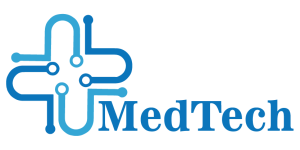In today’s digital age, healthcare systems are facing significant challenges related to data security, privacy, and the ever-growing complexity of managing sensitive medical information. As the world becomes increasingly interconnected, traditional methods of securing healthcare data are being tested. One emerging technology that is proving to be a game-changer in this space is blockchain.
Blockchain technology, best known for powering cryptocurrencies, is finding its way into the healthcare industry, offering solutions to safeguard patient data and enhance the security of digital healthcare systems.
Understanding Blockchain Technology in Healthcare
It is a decentralized digital ledger technology that securely records transactions across multiple computers in a way that prevents tampering or alteration. Each piece of data is stored in “blocks,” and these blocks are linked together in a chronological “chain,” hence the term “blockchain.” The decentralized nature of blockchain ensures that no single entity controls the data, making it inherently more secure than centralized databases.
When applied to healthcare, it can significantly improve medical data security by ensuring that it stores and transmits patient information in a highly secure and transparent way. As healthcare data breaches rise, blockchain protects patient privacy and prevents unauthorized access.
Enhancing Medical Data Security with Blockchain
Cybercriminals often target sensitive patient data, such as medical histories, test results, and treatment plans, seeking to exploit or sell this information. One of the most pressing concerns in modern healthcare is the vulnerability of medical data to cyber-attacks and unauthorized access.
Blockchain provides a robust solution to these problems. It uses encryption and decentralized storage to ensure that patient data is not stored in a single, vulnerable location.
Instead, it distributes the data across multiple nodes, and consensus mechanisms verify each transaction. This makes it nearly impossible for hackers to manipulate the data or gain unauthorized access.
In a blockchain healthcare system, any attempt to alter or tamper with medical records would require overriding the entire blockchain, which is computationally infeasible due to its decentralized structure. This level of security significantly reduces the risk of data breaches and strengthens overall healthcare data integrity.
Protects Patient Privacy
Patient privacy is a fundamental concern in healthcare. With the growing digitization of medical records, there is an increasing need for strict controls to protect patients’ personal health information (PHI). In many cases, patients are unaware of who has access to their data or how it is being used.
Blockchain can help address these concerns by providing patients with control over their own data. Through the use of smart contracts and blockchain-enabled systems, patients can authorize access to their health information on a case-by-case basis.
For example, a patient may grant a doctor access to their medical records for a specific treatment while denying access to third-party entities.
Blockchain facilitates patient consent management by securely and transparently tracking consent. This makes it easier for patients to understand how their data is used and ensures they share it only with authorized parties.
Blockchain and HIPAA Compliance
The Health Insurance Portability and Accountability Act (HIPAA) is a critical piece of legislation in the U.S. that sets standards for the protection of patient data. Compliance with HIPAA is a significant concern for healthcare providers and organizations handling sensitive health information.
Blockchain technology can significantly enhance HIPAA compliance by ensuring the privacy and security of patient data. Its decentralized nature and built-in data encryption help healthcare organizations store medical records securely, restricting access only to authorized individuals and reducing the risk of HIPAA violations.
Additionally, the transparent nature of blockchain ensures that all transactions and access to patient records are fully auditable. This audit trail can be crucial for demonstrating compliance with HIPAA regulations and providing accountability for any unauthorized access to patient information.
Decentralized Healthcare Systems Powered by Blockchain
Traditionally, healthcare systems have relied on centralized databases, often stored and controlled by hospitals, insurance companies, or government agencies. While these systems can be effective, they also have inherent risks related to security, transparency, and data ownership.
It offers a decentralized approach to healthcare data management, where no single party has control over the data. This decentralization reduces the risk of data manipulation and increases trust in the system. In a decentralized healthcare system, patient data is distributed across the blockchain, and only authorized users can access or update it.
Moreover, blockchain can enable interoperability between different healthcare providers and systems. By creating a universal, secure, and standardized framework for sharing patient data, blockchain facilitates seamless data exchange between hospitals, clinics, and insurance companies, improving care coordination and reducing administrative burdens.
Benefits of Blockchain in Healthcare Data Security
- Enhanced Data Security: Blockchain’s encryption and decentralized nature make it more secure than traditional centralized systems, reducing the risk of data breaches and unauthorized access.
- Improved Patient Privacy: Blockchain enables patients to control access to their data, ensuring that it is shared only with authorized individuals or entities.
- HIPAA Compliance: Blockchain provides the transparency and auditability necessary to ensure compliance with regulations like HIPAA, safeguarding patient information and reducing the risk of violations.
- Interoperability: Blockchain enables seamless data exchange between different healthcare systems, promoting better coordination of care and improving patient outcomes.
- Transparency and Auditability: Blockchain’s transparent nature provides an immutable record of all transactions and data access, making it easier to track and monitor healthcare activities.
Challenges and Future in Healthcare
Blockchain offers numerous benefits for healthcare data security, but it requires significant infrastructure investment and the necessary technology and expertise for effective implementation. Healthcare providers must also ensure they have the necessary expertise to establish universal standards, as regulatory frameworks for blockchain in healthcare are still evolving.
However, the potential benefits of blockchain in healthcare are immense. As the technology matures and more healthcare organizations adopt blockchain solutions, it is likely that we will see a significant shift toward decentralized healthcare systems that offer greater security, transparency, and patient control over medical data.
Conclusion
Blockchain technology has the potential to revolutionize healthcare data security by providing a secure, transparent, and decentralized framework for managing patient information. With its ability to enhance patient privacy, ensure HIPAA compliance, and improve interoperability, blockchain is poised to play a pivotal role in the future of digital healthcare. While challenges remain, the benefits of blockchain make it an exciting prospect for the healthcare industry, offering a more secure and patient-centred approach to managing medical data.
I hope you find the above content helpful. For more such informative content, please visit Medtechreporter.











